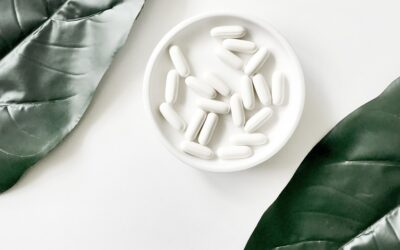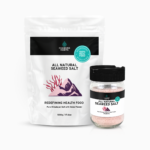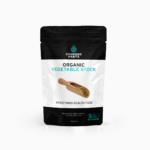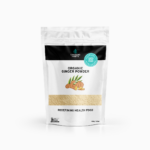Did you know that around 3 million people in Australia have anxiety and depression?
Many people seek help from their GP for these issues and many are prescribed medication. However, food can play a huge role in helping to manage anxiety and depression.
Anxiety and depression could be linked to imbalances within the gut, such as dysbiosis and inflammation. The gut produces many neurotransmitters, such as serotonin, the happy hormone, and GABA (gamma-Aminobutyric acid), which calms you in readiness for sleep. In fact, a whopping 90% of serotonin is produced in your gut! So, it’s little wonder that if your gut isn’t as healthy as it could be, it can impact your mood.
Overgrowths and undergrowths (known as dysbiosis) of particular microbes can dampen down the production of these neurotransmitters. Streptococcus is one such microbe that is commonly overgrown in the gut that nay result in imbalances in your neurotransmitter production. By reducing your sugar intake, you can help reduce the overgrowth and correct the balance of microbes, resulting in a healthy gut microbiome.
You can do wonders for your gut if you stop eating inflammatory foods (such as sugar, gluten, genetically modified corn, soy, preservatives and additives), consider antimicrobial and anti-inflammatory herbs, nutrients that will help fight overgrowths, and then of course increase the beneficial microbes, like probiotics, that our personal body needs.
Our nutritionist Sheridan Austin explored the relationship between gut health and anxiety and depression in our latest Facebook Live session. Other factors that she says we should consider when it comes to gut health include:
Nutrients – Make sure you have a good balance of nutrients. For example, zinc fights against infections and magnesium can help relieve anxiety and mood issues.
Herbs – Adaptogenic herbs can help support good health. Lemon balm, for example, is antiviral and antibacterial; tulsi is detoxifying; and ashwagandha can lower cortisol levels and prepare you for sleep.
Technology – We are constantly being stimulated by technology in today’s modern world. Problems like anxiety and high stress can, in part, be attributed to overstimulation due to technology. As such, it is so important to unplug. Read this blog to find out more. You could also try using a salt lamp – they have been shown to increase serotonin (happy hormone) levels in the brain, reducing depression, anxiety and stress. Find out more about the benefits of salt lamps here.
Watch this video to find out how else you can help to improve your gut health and, as a result, symptoms of anxiety and depression:
Our fortnightly Facebook Live sessions are a great way to get the answers to the questions you need. Let us know what other topics you would like us to cover during these sessions in the comments below!
Follow our Facebook page for details of our next Facebook Live session – see you then!








0 Comments